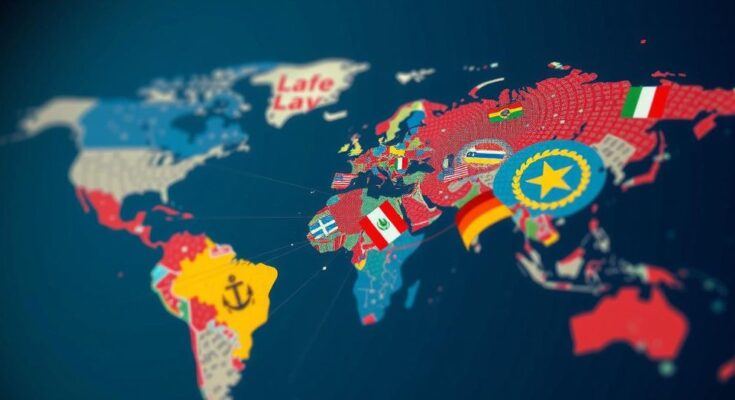The Indian American Muslim Council and other human rights groups urged the U.S. government to impose sanctions on Indian leaders Amit Shah and Ajit Doval for alleged involvement in human rights abuses and acts of violence against Indian minorities. This dire request is framed under the Global Magnitsky Act, with concerns escalating over recent assassinations linked to these officials. The coalition insists on the necessity of holding foreign agents accountable for their actions in the U.S. and Canada.
In a significant call for action, the Indian American Muslim Council (IAMC) and over 20 human rights organizations beseeched the U.S. government to impose sanctions on key Indian officials, including Home Minister Amit Shah and National Security Adviser Ajit Doval. The coalition accuses them of orchestrating unlawful extortions and assassination plots across North America. They have urged Secretaries Antony Blinken and Janet Yellen to consider their request under the Global Magnitsky Act that allows sanctions for serious human rights violations. IAMC Executive Director Rasheed Ahmed expressed grave concerns over Shah and Doval’s campaigns of violence against Indian religious minorities, which now extend into U.S. territories. He emphasized that these actions warrant sanctions to uphold international human rights principles. The situation, Ahmed noted, poses a significant threat to religious freedom and must not go unpunished. Recent findings from the Royal Canadian Mounted Police (RCMP) implicate Shah in authorizing the murder of Sikh leader Hardeep Singh Nijjar, highlighting a web of violence involving Indian diplomats and operatives in Canada. Sanjay Verma, India’s High Commissioner to Canada, denied any involvement, claiming that accusations are politically driven, despite evidence suggesting otherwise. Further scrutiny reveals links between Ajit Doval and the assassination of Gurpatwant Singh Pannun, another Sikh leader in the U.S. The potential for sanctions aligns with previous U.S. actions against Indian entities supporting Russia amid its ongoing conflict in Ukraine, marking a stance against transgressions of international laws. IAMC President Mohamed Jawad asserted that it’s vital to hold Indian political figures accountable for international human rights violations. He urged that if Indian actors face sanctions for their actions in the Ukrainian context, similar measures should apply to those threatening lives within the U.S. and Canada. Sunita Viswanath from Hindus for Human Rights emphasized the need for protective measures for U.S. citizens against foreign governmental threats. The call resounded that international agents must face consequences for suppressing freedoms and instilling fear through extrajudicial acts. Deepali Gill of the Sikh Coalition described the pattern of transnational repression as a coordinated campaign, rather than isolated incidents. She asserted that sanctioning Indian leadership would serve not only as accountability for past actions but also as a deterrent for future violations against civil rights and the sovereignty of nations.
The article addresses a crucial issue of transnational repression, focusing on human rights abuses alleged against Indian officials by a coalition of American organizations. It highlights the worsening situation of religious minorities in India and the implications of these actions extending into North America. The context includes the legal framework provided by the Global Magnitsky Act, which empowers the U.S. to impose sanctions for violations of human rights globally, reflecting a commitment to uphold democratic values and freedoms.
The call for sanctions against Indian officials highlights serious allegations of human rights violations and reflects a growing concern for protecting civil liberties. The IAMC and partnering organizations emphasize the need for accountability to safeguard religious freedoms not only in India but also for those within U.S. borders. As transnational repression surfaces, the responsibility lies upon global powers to act decisively and protect individuals from extrajudicial actions perpetuated by foreign agents.
Original Source: clarionindia.net



